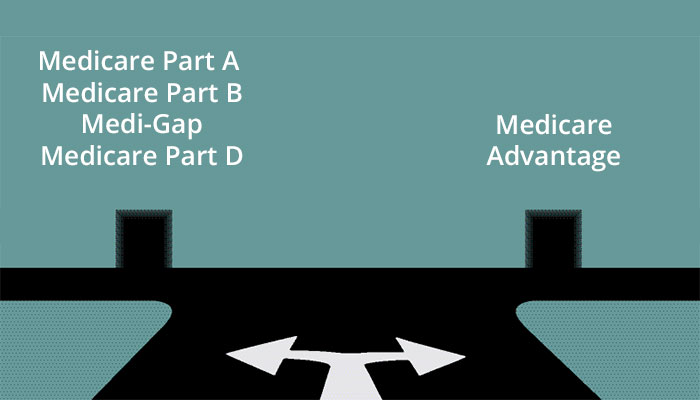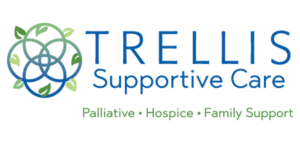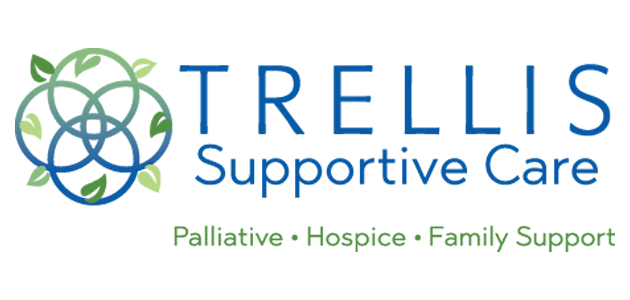Because We Care
Practical tips for family caregivers
October/November 2021
During Open Enrollment for Medicare (October 15–December 7), your loved one may be considering a switch to a Medicare Advantage plan. Weigh the pros and cons carefully as their current policy may not be available if they decide they want to switch back later. In our middle article we talk about the many things you can do to help a loved one coping with emotional issues due to a life-threatening illness. Depression is not something they just have to accept. And last, we talk about the dangers of taking too many medications and how you can help your loved one safely “de-prescribe” (pare back).
- Is Medicare Advantage the best choice?
- Depression after a scary diagnosis
- Too many pills: When less is more
Is Medicare Advantage the best choice?
 Once a year, Medicare offers the option to change plans. In 2021, the Open Enrollment period is October 15–December 7. Your loved one may be considering a switch to a “Medicare Advantage” plan. There are pros and cons.
Once a year, Medicare offers the option to change plans. In 2021, the Open Enrollment period is October 15–December 7. Your loved one may be considering a switch to a “Medicare Advantage” plan. There are pros and cons.
Medicare “Parts.” People on “original Medicare” typically receive hospital coverage (Part A) and doctor care (Part B). In addition, they pay a yearly deductible and the 20% that Medicare does not cover. Or they purchase a supplemental plan, often called “Medigap” coverage. In either case, a prescription drug plan (Part D) is needed too. Medigap and Part D must be purchased from private insurance companies.
Medicare Advantage (MA) is another alternative. It bundles everything together. MA plans are offered by private insurers and vary widely.
On the plus side, MA plans
- offer lower monthly premiums. This is their key appeal.
- involve less paperwork. Most plans incorporate prescription coverage. Then there’s just one company to deal with for everything.
- can provide extra benefits. Depending on the policy, dental or vision coverage may be included. Or other benefits not available with original Medicare and Medigap.
On the down side, MA plans
- may involve higher out-of-pocket expenses. Premiums are lower. But deductibles and copays may be higher. MA plans may cost less for low-use patients. But once you start using services, you may spend more.
- restrict choice of doctors. Those on an Advantage plan can see only doctors in the plan’s network. This limits choice and flexibility. For instance, your loved one can’t seek out a research hospital for cutting-edge treatment.
- may not provide coverage while traveling. MA plans are very regional. Medicare and Medigap policies, on the other hand, work across the United States.
Contrast MA with Medigap. If your relative prefers paying the same fee each month, regardless of usage, original Medicare with Medigap is the better choice.
A note of caution: If your relative leaves a Medigap policy, there is no guarantee of return. Existing medical conditions may cause premiums to skyrocket. Or block coverage altogether.
Return to topDepression after a scary diagnosis
 If the person you care for has a life-threatening illness, you might think it’s only natural for them to feel down. Even hopeless from time to time.
If the person you care for has a life-threatening illness, you might think it’s only natural for them to feel down. Even hopeless from time to time.
But weeks of sadness are not a side effect one simply has to tolerate. It is not uncommon for someone with cancer or a similarly scary diagnosis to become depressed.
Depression can and should be treated.
Effective treatment makes for better quality of life. It can also improve other symptoms, such as pain and insomnia.
- Easing physical distress. The first step is to address difficult physical symptoms. Ask for a referral for palliative care. These specialists aim to resolve pain, nausea, fatigue, and other distressing symptoms, even when they are the side effects of treatment. Hospice also specializes in comfort care. Ask the doctor if a hospice referral is appropriate.
- Addressing emotional issues. Your loved one may feel despair about unresolved relationships. Or may be grappling with concerns about dignity or feeling like a burden to others. Medications and short-term psychotherapy can help a lot. Also support groups with other patients. Palliative care and hospice specialists know this terrain. They are well versed in the emotional issues that arise with a life-threatening illness.
- Finding meaning or purpose. Facing a potentially terminal illness can raise questions about the meaning of one’s life. Some people find relief in life review with a trained counselor. Others find meditation brings calm and a new perspective. Talking with a member of the clergy or other spiritual advisor may bring solace. Hospice programs have chaplains on staff. They can help your relative zero in on meaning and purpose without pushing a particular religious agenda.
Too many pills: When less is more
 More than half of older adults take five or more medications per day. That’s “polypharmacy,” and can be dangerous. Taking too many medicines can cause problems like dizziness, mental confusion, and heart failure. It can increase the risk of falls, which often lead to the end of independent living. An estimated 10% to 30% of older adult hospitalizations are due to medication problems.
More than half of older adults take five or more medications per day. That’s “polypharmacy,” and can be dangerous. Taking too many medicines can cause problems like dizziness, mental confusion, and heart failure. It can increase the risk of falls, which often lead to the end of independent living. An estimated 10% to 30% of older adult hospitalizations are due to medication problems.
It’s easy for medicines to pile up. A specialist may not know what other doctors are prescribing. Doctors hesitate to eliminate a drug another physician has ordered. Your relative may be on medications that made sense following a hospital discharge but are no longer needed.
Any time there is a significant health event or behavior change, consider a medication review.
October 23 is National Prescription Drug Take Back Day. Use this as a reminder to ask for a review of medicines, supplements, and over-the-counter drugs with the doctor or a pharmacist.
- Questions to ask. What is each drug for? Can any be eliminated? Are the side effects worse than the conditions they treat? Are they safe to take with the other drugs?
- Explore other options. Is a lower dose possible, for fewer side effects? Would a generic be just as effective, yet less expensive? (Good for the pocketbook!) Could lifestyle changes, such as diet or exercise, reduce the need for a drug?
- Eliminate only one medicine at a time. This way you will know if stopping a particular prescription creates a problem. Don’t do this on your own! A doctor’s supervision is needed to determine which drugs are okay to “de-prescribe.”
If you have drugs to dispose of, do it safely. Look for your local safe disposal sites at med-project.org. (Flushing drugs down the toilet pollutes the water table. Throwing them in the trash may lead to children, pets, and others getting to them in ways that could be dangerous.)
Return to top
